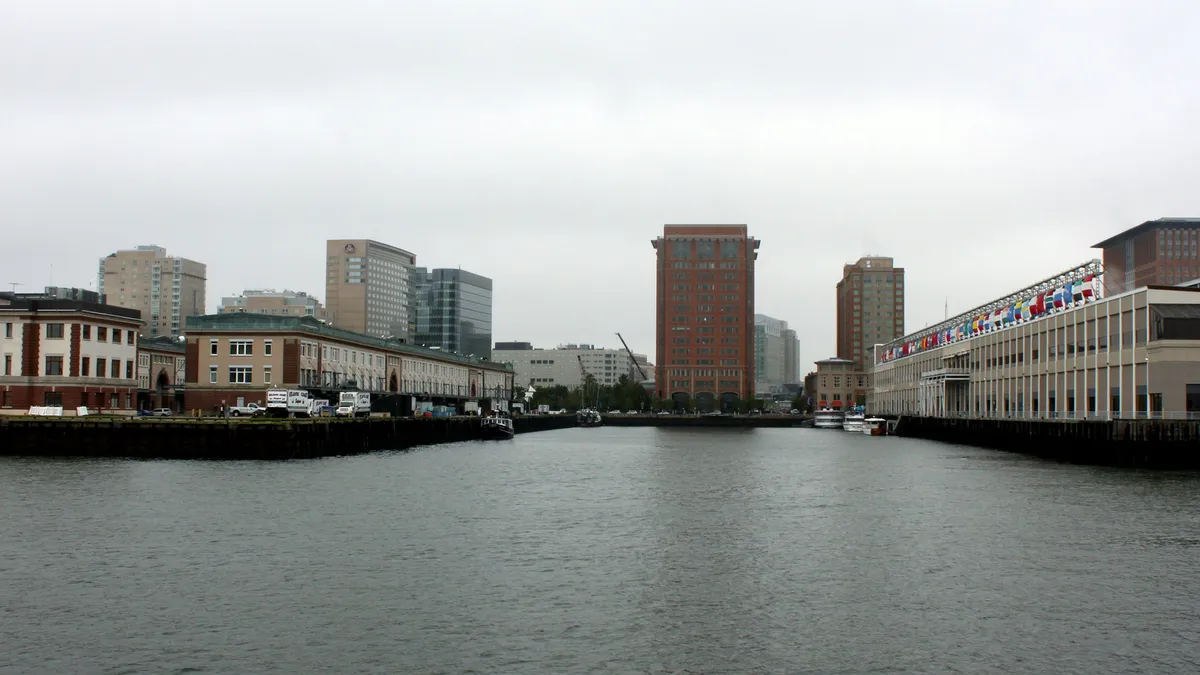Dive Brief:
- A Boston-area company has announced its updated plans to turn more than 12 acres of parking lots in the Boston Seaport District into a nine-building development that will increase mixed-use density in the area by 21% to nearly 8 million square feet, according to the Boston Business Journal.
- WS Development's plan includes 1.4 million square feet of additional residential units, innovation space, a retail- and restaurant-lined promenade called Harbor Way, as well as a public "piazza" WS calls Harbor Square.
- Redevelopment in the Seaport District is already underway, with almost 3.5 million square feet complete or in-progress. WS is expected to complete its portion of the project by 2022.
Dive Insight:
Autodesk's Boston offices and its Building, Innovation, Learning and Design (BUILD) lab are also located in the city's innovation district. The company takes up 70,000 square feet in the mammoth Innovation and Design Building, the site of a former Army storage facility. The 34,000-square-foot BUILD space is a free research workshop that allows companies with a construction-related idea to develop it onsite at no charge, with the exception of insurance and materials.
While many neighborhoods embrace increased density, there are also many developments that face community pushback. High-density residential and office projects are important for transit-oriented developments as they bring much-needed ridership to whatever transit system is installed at the community's core. However, some opponents of high-density developments maintain that these sprawling mini-cities create stress on existing infrastructure, alter a neighborhood's character and force out long-time residents who can't afford the rent increases that usually follow a program of luxury construction and development.
In Los Angeles, the Neighborhood Integrity Initiative is on the ballot for March. If the measure passes, it will put a moratorium on the rezoning necessary to be able to build megaprojects in the city. Miami hasn't gone so far as to put the issue up for a vote, but Miami Mayor Tomás Regalado has started to push back against the same kind of projects. He recently came out publicly against a project that would add 713 additional residential units to the area, along with retail and restaurants. Critics of the project, including Regalado, argue that these developments aren't a good fit for the historical neighborhoods.













